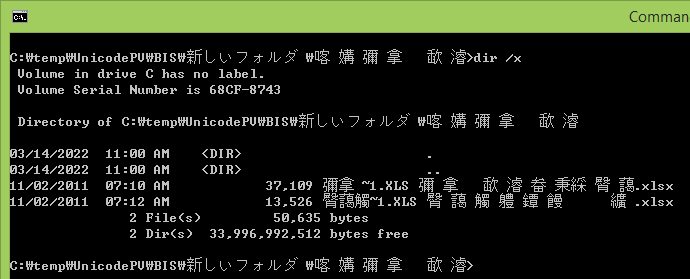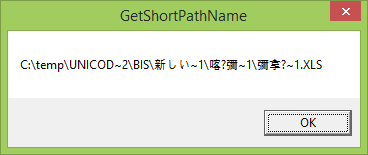According to Double-byte Character Sets,
Each DBCS code page supports different characters, but no page supports the full breadth of characters provided by Unicode. Each DBCS code page supports a different subset, differently encoded. Data converted from one DBCS code page to another is subject to corruption because the same data value on different code pages can encode a different character. Data converted from Unicode to DBCS is subject to data loss, because a given code page might not be able to represent every character used in that particular Unicode data.
Also Several Unicode and character set functions allow your applications to handle code pages. An application can use the GetCPInfo and GetCPInfoEx functions to obtain information about a code page. This information includes the default character used when a character in a converted string has no corresponding entry in the code page. And You'd better check what is CP_OEMCP(The current system OEM code page).




